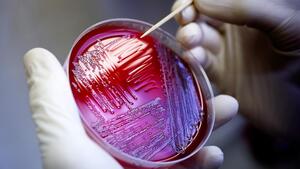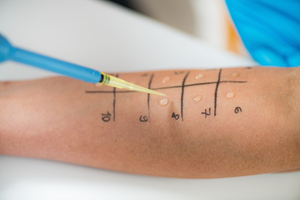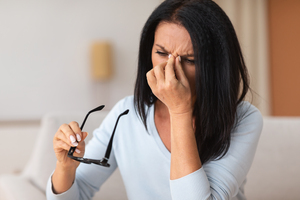Book an STD Test in Seattle, WA
Own a clinic? Add your location.
Help patients book appointments with you on Solv. It's free!
20 instant-book locations

ZoomCare, South Lake Union
ZoomCare
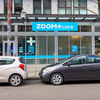
ZoomCare, Capitol Hill Broadway & Mercer
ZoomCare
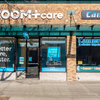
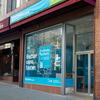
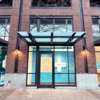

ZoomCare, Queen Anne
ZoomCare


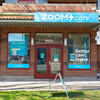
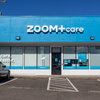
ZoomCare, West Seattle
ZoomCare
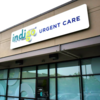
MultiCare Indigo Urgent Care, Rainier
MultiCare Indigo Urgent Care

MultiCare Indigo Urgent Care, Wallingford
MultiCare Indigo Urgent Care
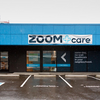
ZoomCare, Bellevue & 4th
ZoomCare
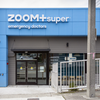
ZoomCare Super, Bellevue Super
ZoomCare Super


MultiCare Indigo Urgent Care, Bellevue
MultiCare Indigo Urgent Care

ZoomCare, Shoreline
ZoomCare

MultiCare Indigo Urgent Care, Kirkland
MultiCare Indigo Urgent Care
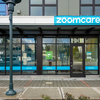
ZoomCare, Kirkland Totem Lake
ZoomCare

MultiCare Indigo Urgent Care, Redmond
MultiCare Indigo Urgent Care
Own a clinic? Add your location.
Help patients book appointments with you on Solv. It's free!
Overview of STD Testing in Seattle
Who should get tested for STDs?
Anyone who is sexually active should consider getting tested for STDs, especially those with multiple partners or those who do not consistently use protection during sexual activity. This includes both men and women, regardless of sexual orientation or age. According to the CDC, certain groups are at higher risk and should get tested regularly. These groups include sexually active gay and bisexual men, sexually active women under 25, and anyone who has unprotected sex with multiple partners.
Importance of getting tested
Getting tested for STDs is essential for maintaining good sexual health. Many STDs do not show symptoms in the early stages, but they can still cause long-term health problems if left untreated. Regular testing allows for early detection and treatment, reducing the risk of complications. It also helps prevent the spread of STDs to others. According to the CDC, regular testing is a critical part of preventing the spread of STDs in the community.
STD testing options in Seattle, WA
Urgent care and walk-in clinics
Urgent care and walk-in clinics offer convenient, same-day STD testing. Indigo, located at 3820 Rainier Ave S in Seattle, is a highly-rated option with a 4.77 rating based on 4494 reviews. You can book same-day and next-day appointments at Indigo through Solv’s website and mobile app.
Primary care providers
Primary care providers can also provide STD testing. It's essential to discuss your sexual history with your provider so they can recommend the appropriate tests.
Free STD testing and community health centers
Community health centers like HealthPoint in Kent, WA offer STD testing, often on a sliding fee scale based on income. HealthPoint has a 4.61 rating based on 5073 reviews.
At-home testing
At-home STD testing kits are another option. These kits can be ordered online, used at home, and sent back to a lab for testing. Results are typically available online within a few days.
Prevalence of STDs in Seattle
Seattle, located in King County, WA, has seen a steady increase in STD cases over the years, mirroring national trends. According to the CDC, the most common STDs in Seattle are chlamydia, gonorrhea, and syphilis. The rates of these STDs are higher in Seattle compared to nearby cities like Medina, Mercer Island, Bellevue, Kirkland, and Inglewood-Finn Hill.
Risk factors related to STDs in Seattle
Several factors contribute to the high prevalence of STDs in Seattle. These include high rates of unprotected sex, multiple sexual partners, and a lack of regular testing. Certain populations, such as men who have sex with men and young adults, are particularly at risk. However, anyone who is sexually active can contract an STD, making regular testing important for everyone.
Solv has strict sourcing guidelines and relies on peer-reviewed studies, academic research institutions, and medical associations. We avoid using tertiary references.
STD Testing FAQs
Where should I get an STD test in Seattle?
In a doctor's office, a health clinic, or an urgent care center, you can get an STD test. If you're experiencing symptoms, it's best to visit a doctor's office, where they can also treat you or issue you a prescription. While some Seattle clinics and urgent care centers allow walk-in appointments, it's advisable to make an appointment ahead of time to prevent excessive waits.
How long does it take to get STD test results?
Various testing are required for various STDs. Depending on the type of STD test you took, you may receive your results in two to ten days. Some outcomes may be immediately available. Your doctor may be able to diagnose an STD through a physical examination. In some cases, your doctor's office may only contact you if your test results are positive.
How much does an STD test cost in Seattle?
The cost of STD testing is governed by several factors, including where you are tested, the type of test you need, and if you have health insurance. Some Seattle clinics may offer free testing or testing on a sliding scale based on your income. Because of the cost, don't put off obtaining an STD test. With your doctor's office, discuss the cost and payment choices. Delaying STD treatment may have catastrophic implications.
Does insurance cover STD testing in Seattle?
The cost of STD testing is governed by a number of factors, including the location of the test, the type of test required, and whether or not you have health insurance. Some clinics may provide free or sliding-scale testing, depending on your income. Don't let the expense of an STD test deter you from getting one. With your doctor's office, discuss the price and payment choices. Delaying STD treatment could have catastrophic ramifications.
How do they test for STDs in Seattle?
There are around 20 different forms of STDs, each with its own set of diagnostic tests. No single test exists that can detect all types of STDs. Your doctor can help you figure out which tests you'll need. In STD testing, a blood sample or a urine sample may be used. Your doctor may also take a swab from the inside of your cheek, your vaginal area, or another potentially infected place.
What STDs can be detected by a blood test?
Blood tests are used to diagnose hepatitis B, hepatitis C, herpes, HIV, and syphilis. In a laboratory, a technician examines a blood sample for antibodies that the body has produced in reaction to disease. The virus's DNA can also be detected by several blood tests. Remember that if you've recently been exposed to an STD and your body hasn't yet produced antibodies, you could test negative even if you have the disease.
Can I get a same-day appointment for STD testing in Seattle?
Many Seattle, WA urgent care providers offer same-day and next-day appointments, which you may book through Solv. To make healthcare more accessible to everyone, we collaborate with thousands of top-rated local providers. Our physician partners understand that waiting days, if not weeks, for an appointment isn't always the best option, and they share our commitment to simple, accessible health care.
How can I book an STD test on Solv?
To find a healthcare practitioner in your area, simply enter your location and search for "STD test" on our website. A list of providers and available appointments can be found on the following page. Choose the most convenient time and location for you. Make it clear that you've come for STD testing.
How long does an STD test take in Seattle?
If you have a specific STD, inform your doctor so that the necessary test can be scheduled. Otherwise, they'll help you figure out which tests you'll need. The nurse or doctor simply needs a few minutes to get a blood sample, a urine sample, or a swab from the probable infection site.
Can I test myself for STDs at home?
Although there are several STD home tests available, not all of them are accurate. The accuracy of any STD test is determined by the quality of the sample taken. For home STD kits, a blood sample, a urine sample, or both are frequently required. Because doctors and nurses have more experience collecting samples, traditional in-office STD testing is the most accurate.
Related Searches
Drug Test in Seattle, WA
A1C Test in Seattle, WA
DOT Exam in Seattle, WA
Ear Wax Removal in Seattle, WA
Pregnancy Test in Seattle, WA
Sports Physicals in Seattle, WA
DNA Test in Seattle, WA
Blood Test in Seattle, WA
Lab Tests in Seattle, WA
Diabetes Test in Seattle, WA
Flu Test in Seattle, WA
Basic Metabolic Panel in Seattle, WA
Diagnostic Test in Seattle, WA
Cholesterol Test in Seattle, WA
Glucose Test in Seattle, WA
CMP Test in Seattle, WA
Allergy Testing in Seattle, WA
Strep Test in Seattle, WA
TB Test in Seattle, WA
Urinalysis in Seattle, WA
Vitamin D Test in Seattle, WA
H Pylori Test in Seattle, WA
Mono Test in Seattle, WA
Pulmonary Function Test in Seattle, WA
RSV Test in Seattle, WA
Thyroid Test in Seattle, WA
Urgent Care in Seattle, WA
Pediatric Urgent Care in Seattle, WA
COVID-19 Pill in Seattle, WA
COVID-19 Testing in Seattle, WA
Retail Clinic in Seattle, WA
Dermatologists in Seattle, WA
Hepatitis test in Seattle, WA
Aetna Urgent Care
Blue Cross Blue Shield Urgent Care
Cigna Urgent Care
COVID-19
Flu
United Health Urgent Care
» All services in Seattle, WAFind STD testing
Nearby cities
Popular Brands in Seattle
Everyday Healthcare, Simplified
Expert advice to help you live your best life

